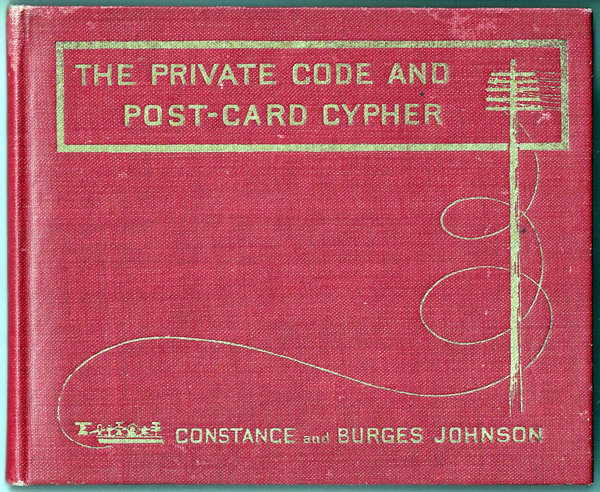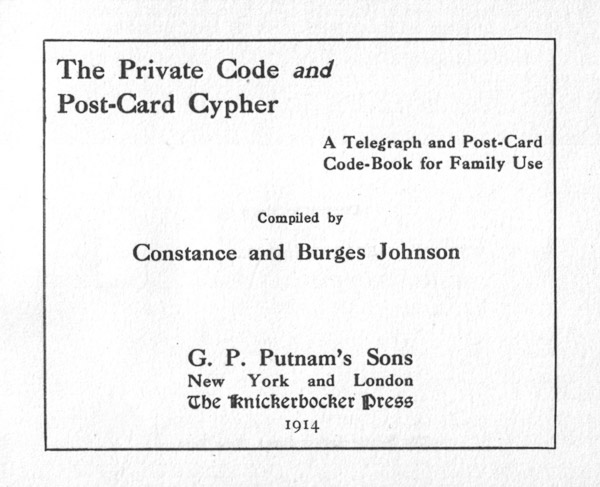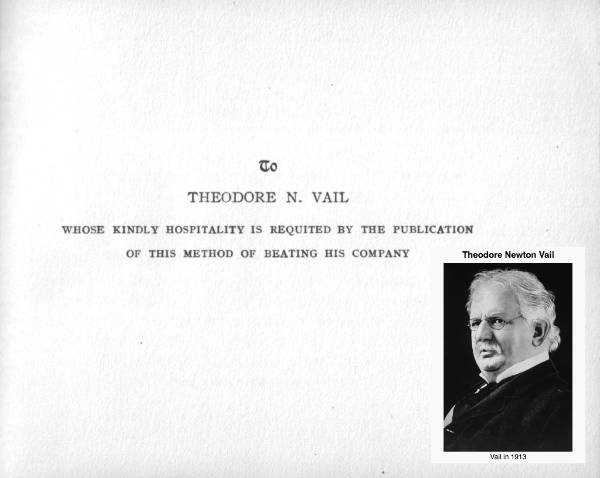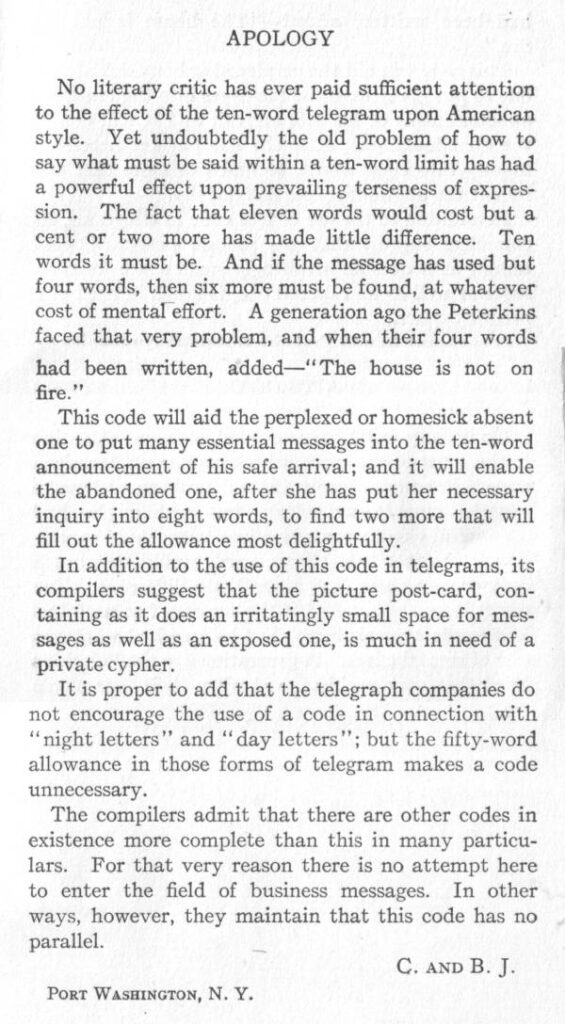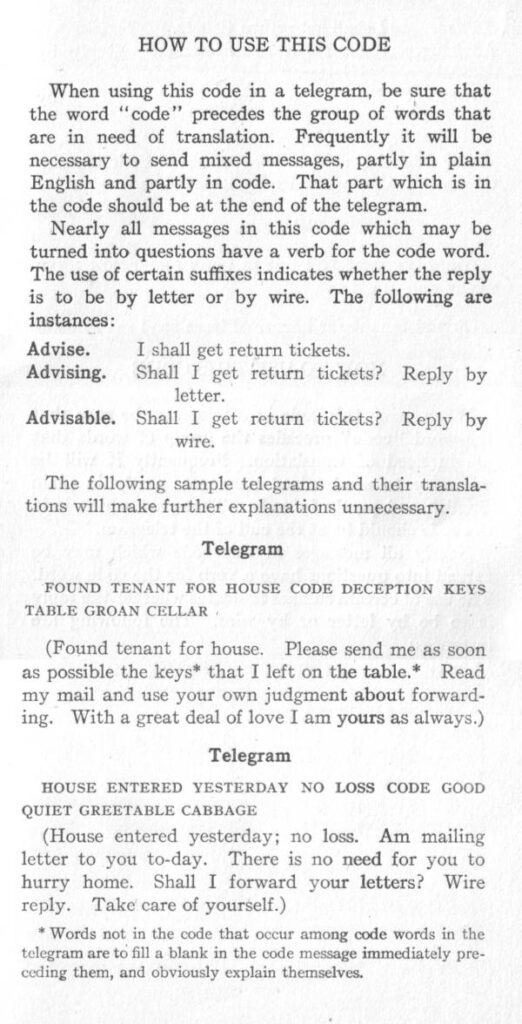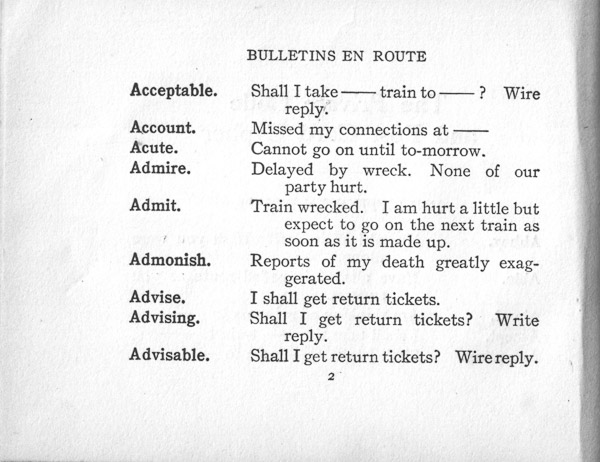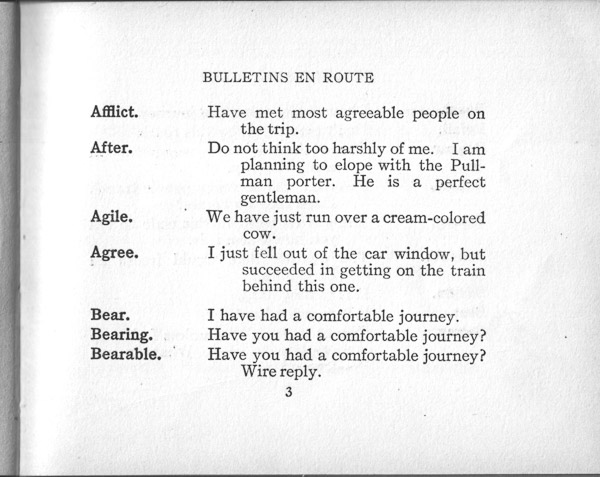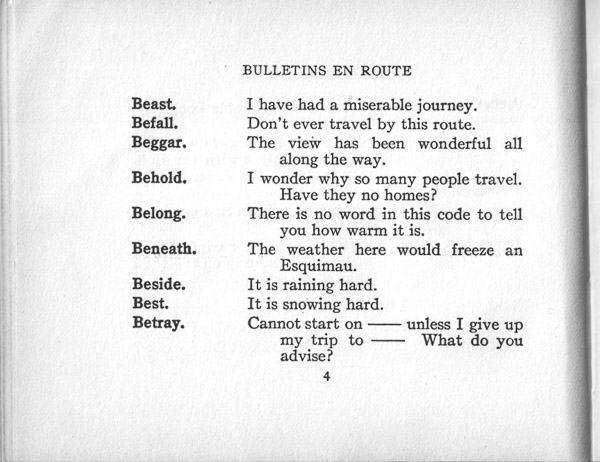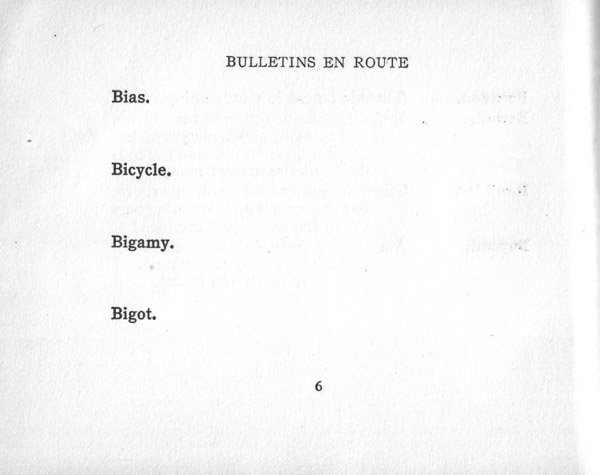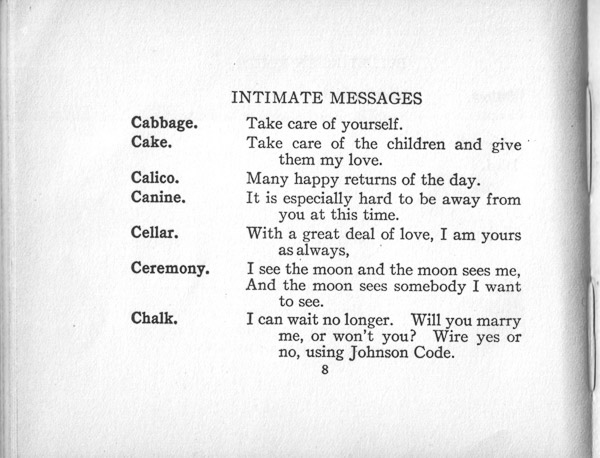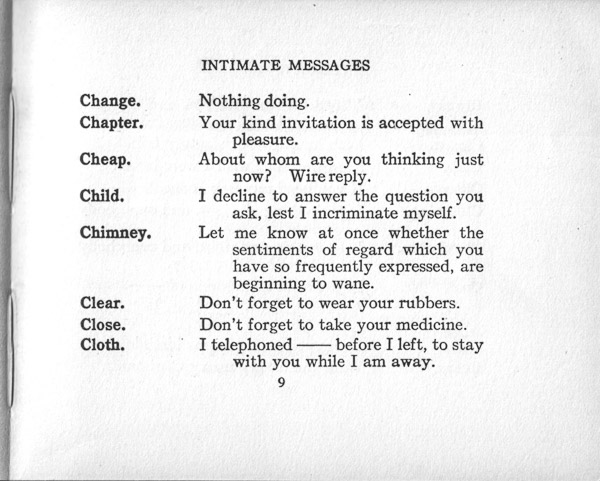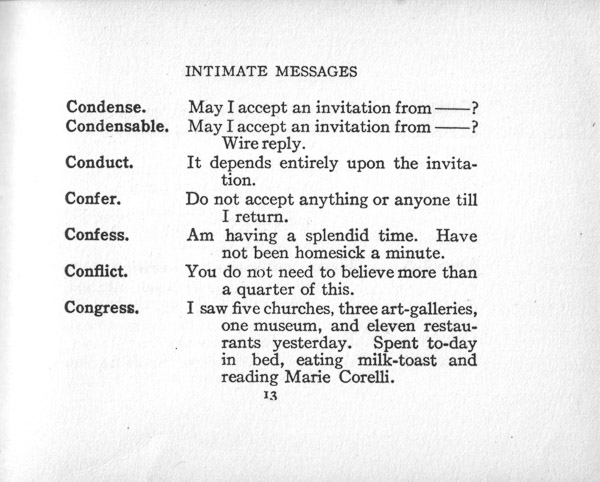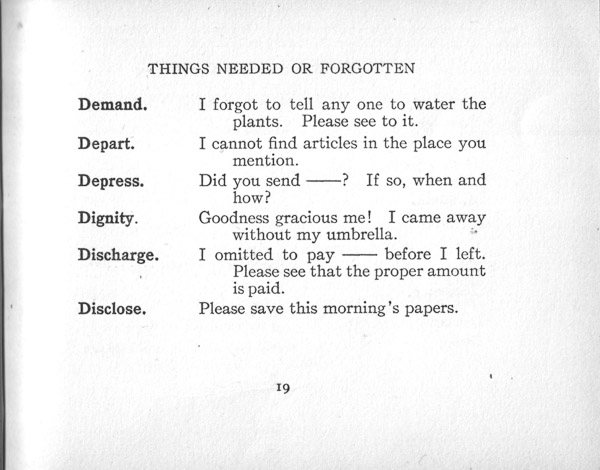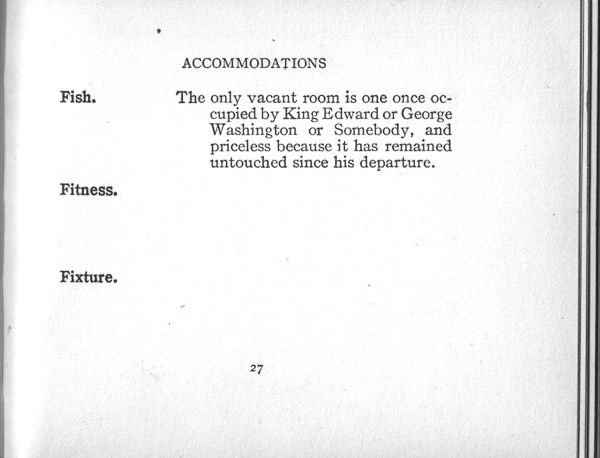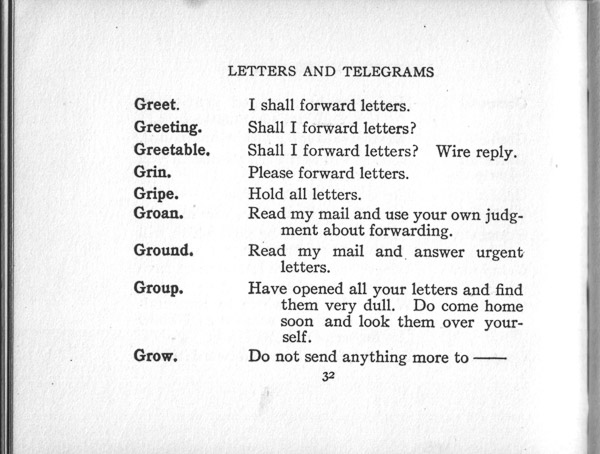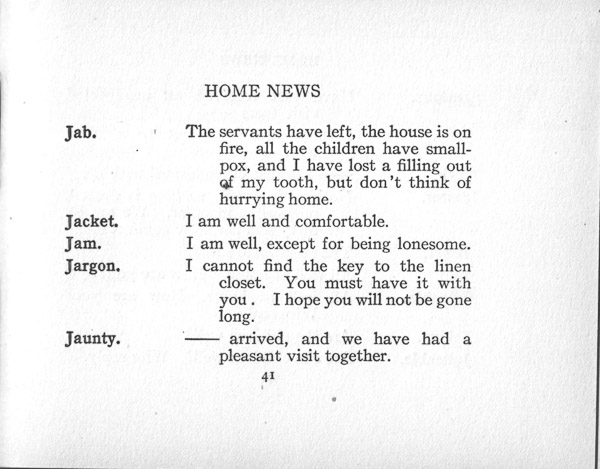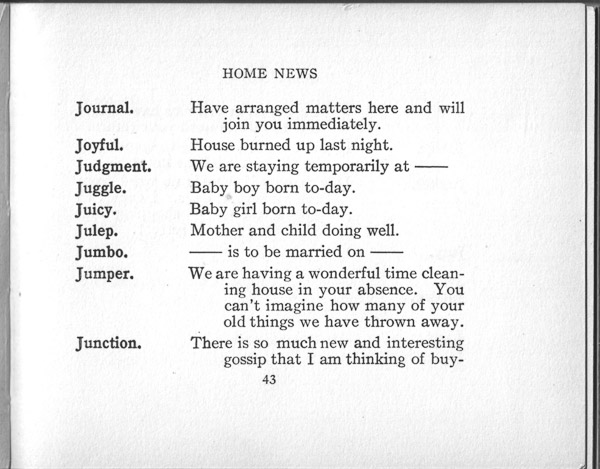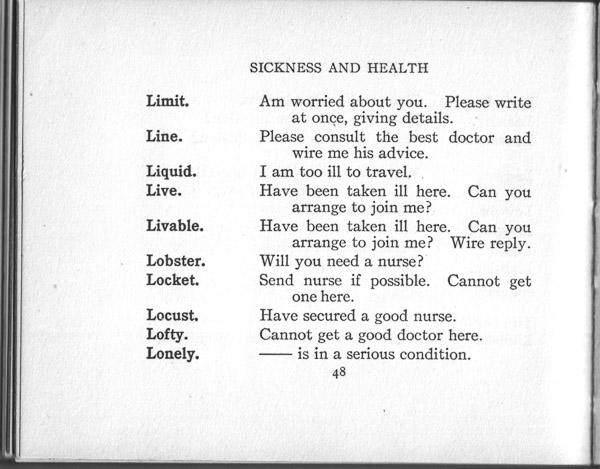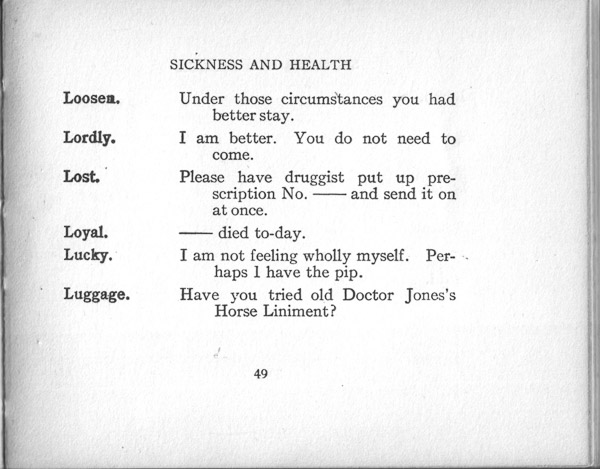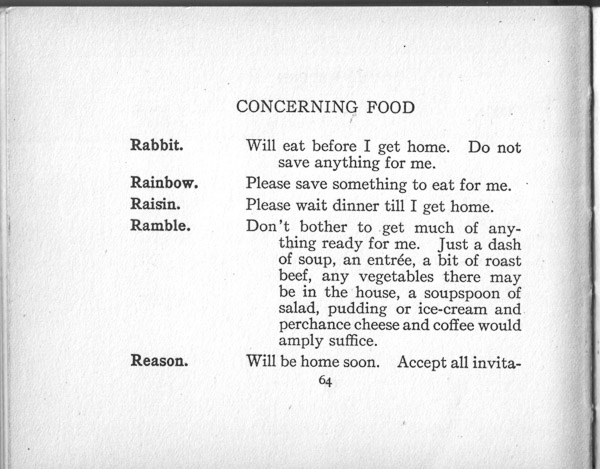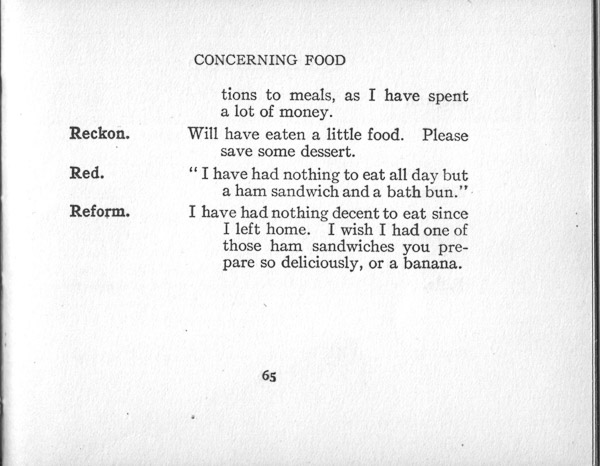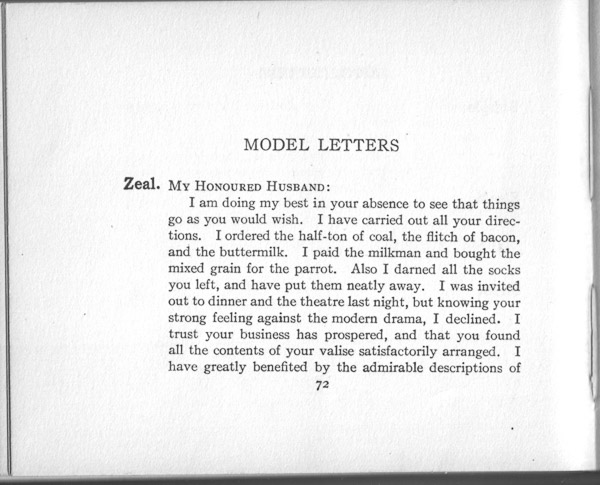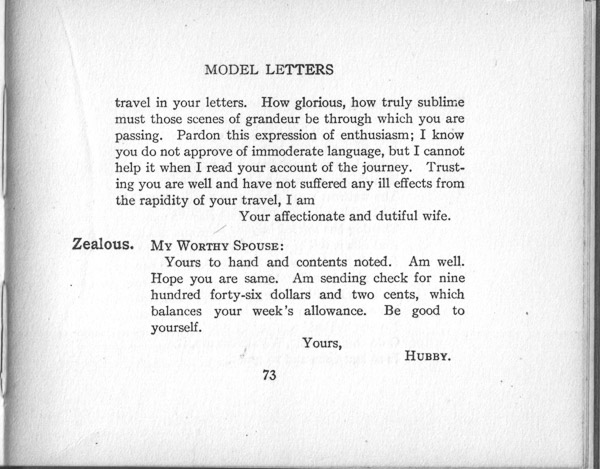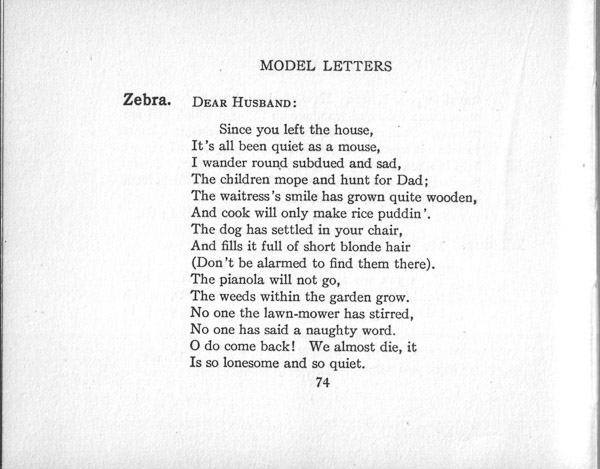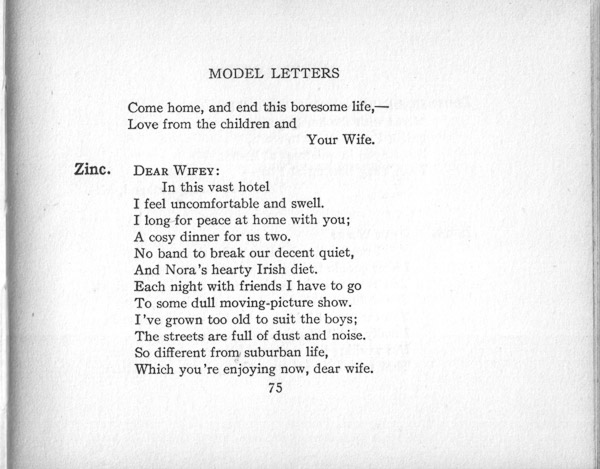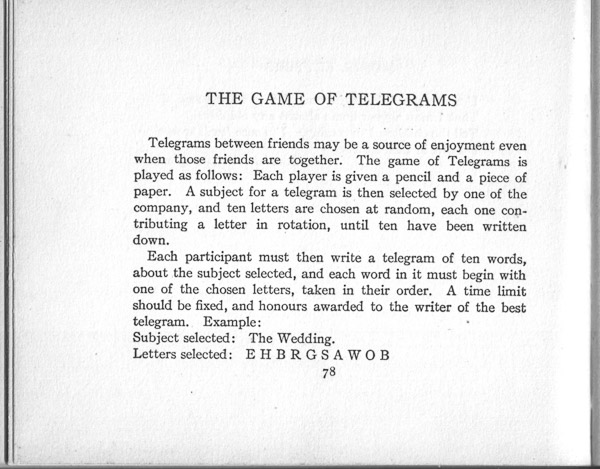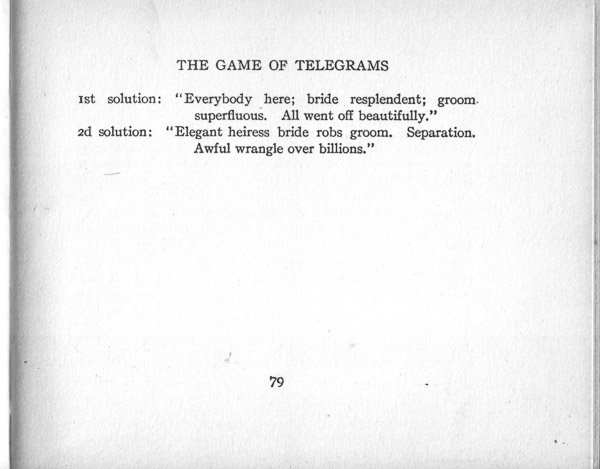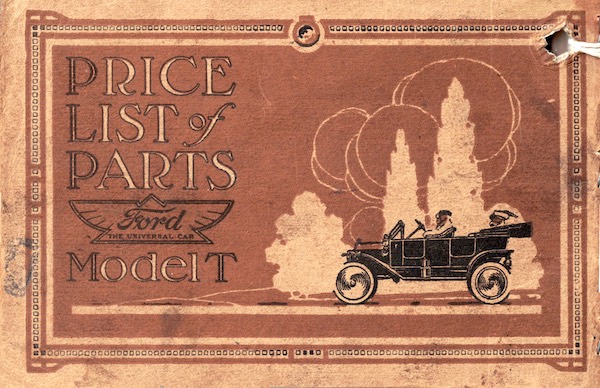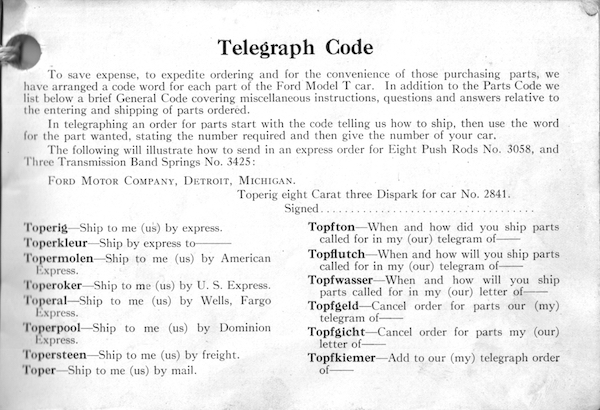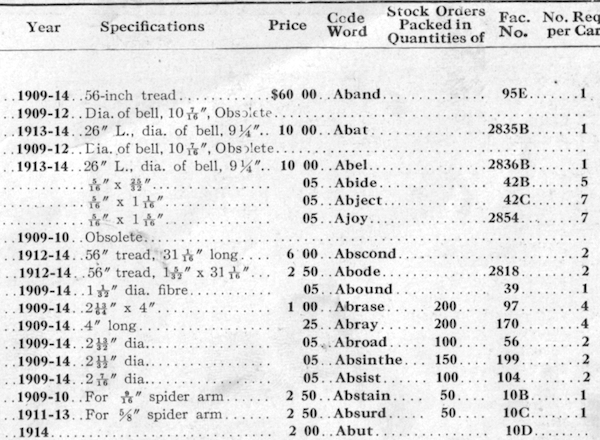Back in the days when long distance telephone calls were very expensive, families had various ring codes to let their loved ones know that they got there safe but avoided paying for an actual call. Ours was to let it ring twice and hang up (if I remember correctly).
This little gem of a book illustrates how inventive our ancestors were when it came to the telephone equivalent of the day—the ten word telegram. The basic idea was don’t let any leftover words go to waste (you already paid for them after all!).
The introductory Apology (in the sense of a reasoned argument or writing in justification of something) hints at an axiom of human nature—avoiding small marginal costs (the $9.99 price tag and the 9/10s cent added to gas prices). Ten words it must be. This code will aid the perplexed, homesick, and abandoned among us… a bold claim!
The approach is pretty simple (elegant?)… the non-coded message comes first, followed by the delimiter word CODE. A mix of code words and specifiers completes the message. Specifiers might be a specific item (keys in the example below) or the name of a city or hotel. There is also the interesting parts of speech variation indicating 1) a statement with no need to reply, 2) a question expecting a reply by letter, and 3) a question expecting a reply by wire (telegram).
Example Codes
The bulk of the book lists the actual code words as conceived by the authors. One thing that becomes obvious is that some of these codes are jocular or even absurd. There is no differentiation or explanation of these. My favorite is…
Jab = The servants have left, the house is on fire, all the children have smallpox, and I have lost a filling out of my tooth… but don’t think of hurrying home.
Each section ends with a page or two of unassigned code words, presumably for readers to add their own messages. I’m trying to imagine using the word Bigot in a telegram to my grandmother?!
Love these intimate messages!
I see the moon and the moon sees me, and the moon sees somebody I want to see.
Will you marry me, or won’t you? Wire yes or no, using Johnson Code.
The last makes no sense since yes and no are not code words. I guess they expect sweet nothings to follow a yes, not sure what you’d say after a no?
…Perchance cheese and coffee would amply suffice.
Appendices
The book ends with two chapters that are only loosely connected to the code system (as far as I can tell). The first is titled Model Letters. Not sure if you were supposed to take out a sheaf of pre-written letters and read them based on the code words?!
Poetry… ?!
And finally, a description of how to play the Game of Telegrams.
Another Example
During our discussion my neighbor produced a Ford Model T Parts Catalog also from 1914. It turns out they used an extensive system of code words to indicate how and what you were ordering!
See Also: Telegraphic and Signal Codes
Books pictured/reviewed here are from the
Alachua County Friends of the Library
unless otherwise specified.
Materials presented for review purposes only.


